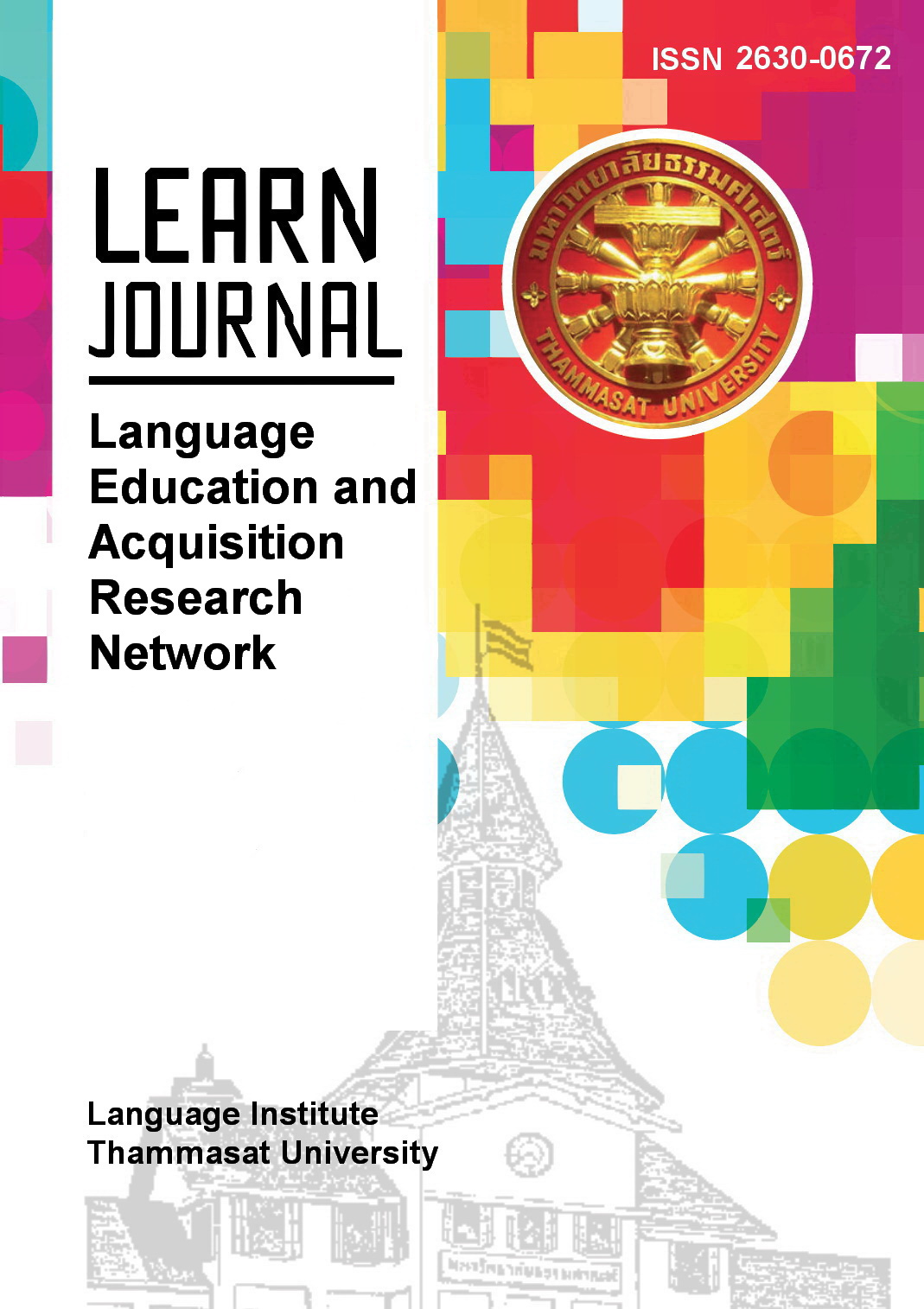The Framework of an AR-Quest Instructional Design Model Based on Situated Learning to Enhance Thai Undergraduate Students’ Khmer Vocabulary Ability
Main Article Content
Abstract
The application of Augmented Reality technology in education has been increasing from year to year. The researchers conducted this study to propose a framework for an AR-Quest instructional design model based on situated learning to enhance Thai undergraduate students’ Khmer vocabulary ability. The proposed framework was evaluated by experts from the fields of Educational Technology and Communications, Instructional Design, and Language Teaching. The data from the evaluation form from the experts were calculated using the mean value. Then, thirty students were taught using the instruction developed from the model; and they were assessed by a pretest and posttest vocabulary test. The results found that the AR-Quest instructional design model comprises 1) analysis, 2) AR Package Development, 3) AR Quest Development, 4) Instruction Development, 5) Model Implementation, and 6) Model Revision. The result from the Khmer vocabulary ability score of the posttest of the students suggested a higher score than the pretest, showing a difference at a .05 significance level.


